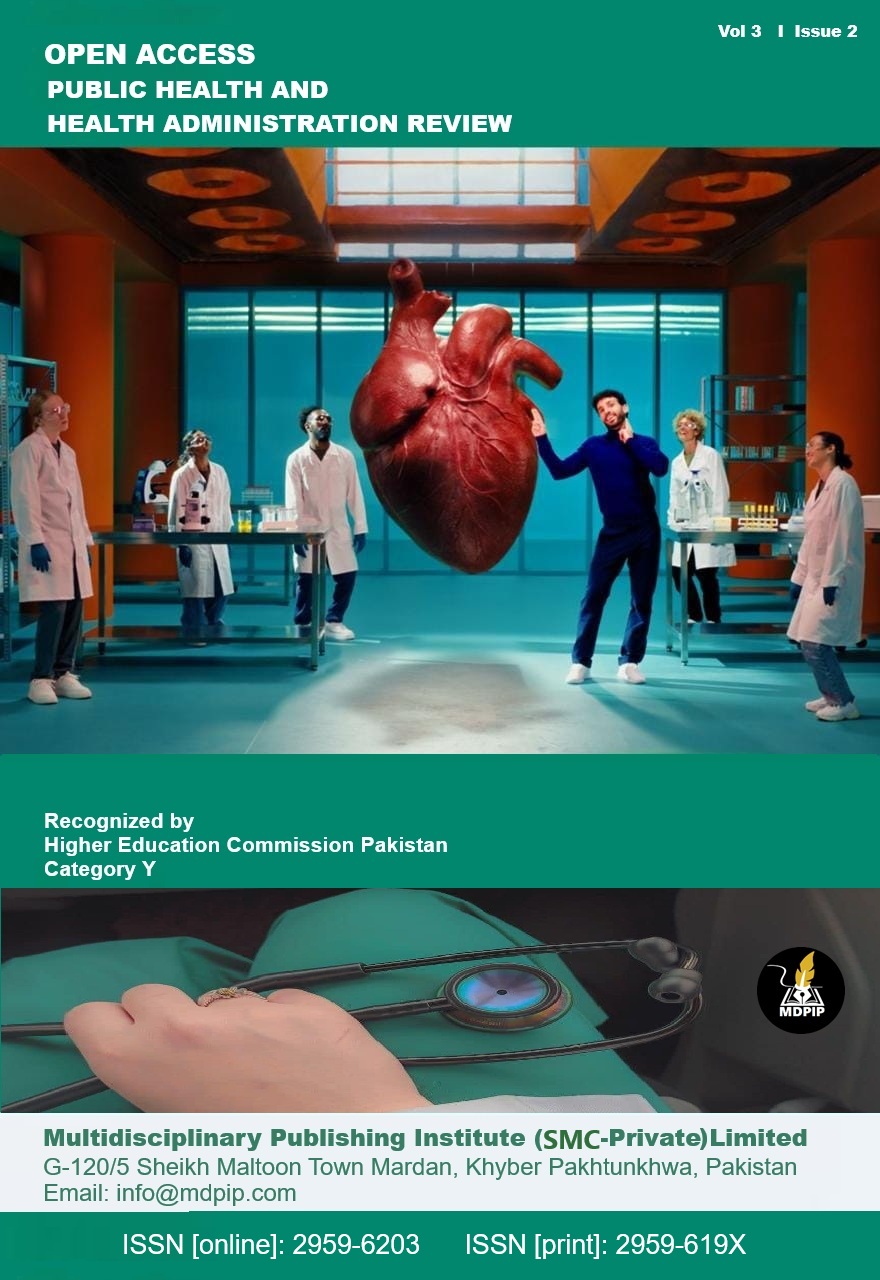Diabetes Self-Management Education (DSME): Evaluating Its Impact on Patient Outcomes and Behavioral Change in Urban and Rural Populations
DOI:
https://doi.org/10.59644/oaphhar.3(2).170Keywords:
Diabetes Self-Management Education, Type 2 Diabetes, Patient Outcomes, Behavioral Change, Urban-Rural Health Disparities, Pakistan, DSME, Public Hospitals, HbA1c, Health LiteracyAbstract
Diabetes Self-Management Education (DSME) has emerged as a critical intervention for improving glycemic control and enhancing the quality of life for patients with type2 diabetes mellitus. This study aimed to evaluates the effectiveness of DSME programs in influencing patient outcomes and behavioral change across both urban and rural populations in Pakistan. With rising diabetes prevalence and limited health literacy, particularly in rural areas, understanding the contextual effectiveness of DSME is vital for public health planning. A comparative, quasi-experimental research design was adopted, with data collected from two major tertiary care hospitals in Karachi and Peshawar (urban) and two district-level public hospitals in Sindh and Khyber Pakhtunkhwa (rural). A total of 300 adult patients with diagnosed type 2 diabetes were enrolled. Participants received DSME interventions over a 12-week period, including dietary counseling, insulin adherence, physical activity planning, and blood glucose self-monitoring. Pre- and post-intervention assessments were conducted using HbA1c levels, a standardized Diabetes Knowledge Questionnaire (DKQ), and behavioral self-care surveys. Findings revealed statistically significant improvements in HbA1c levels and diabetes knowledge scores in both groups (p < 0.05), with urban participants showing a slightly higher behavioral compliance rate. However, rural participants displayed notable gains in self-care awareness, highlighting the potential for impactful change when access is improved. The study concludes that DSME is a highly effective tool for improving diabetes management in diverse populations. Expanding these programs through primary care units and community health workers could greatly enhance chronic disease control in Pakistan.






